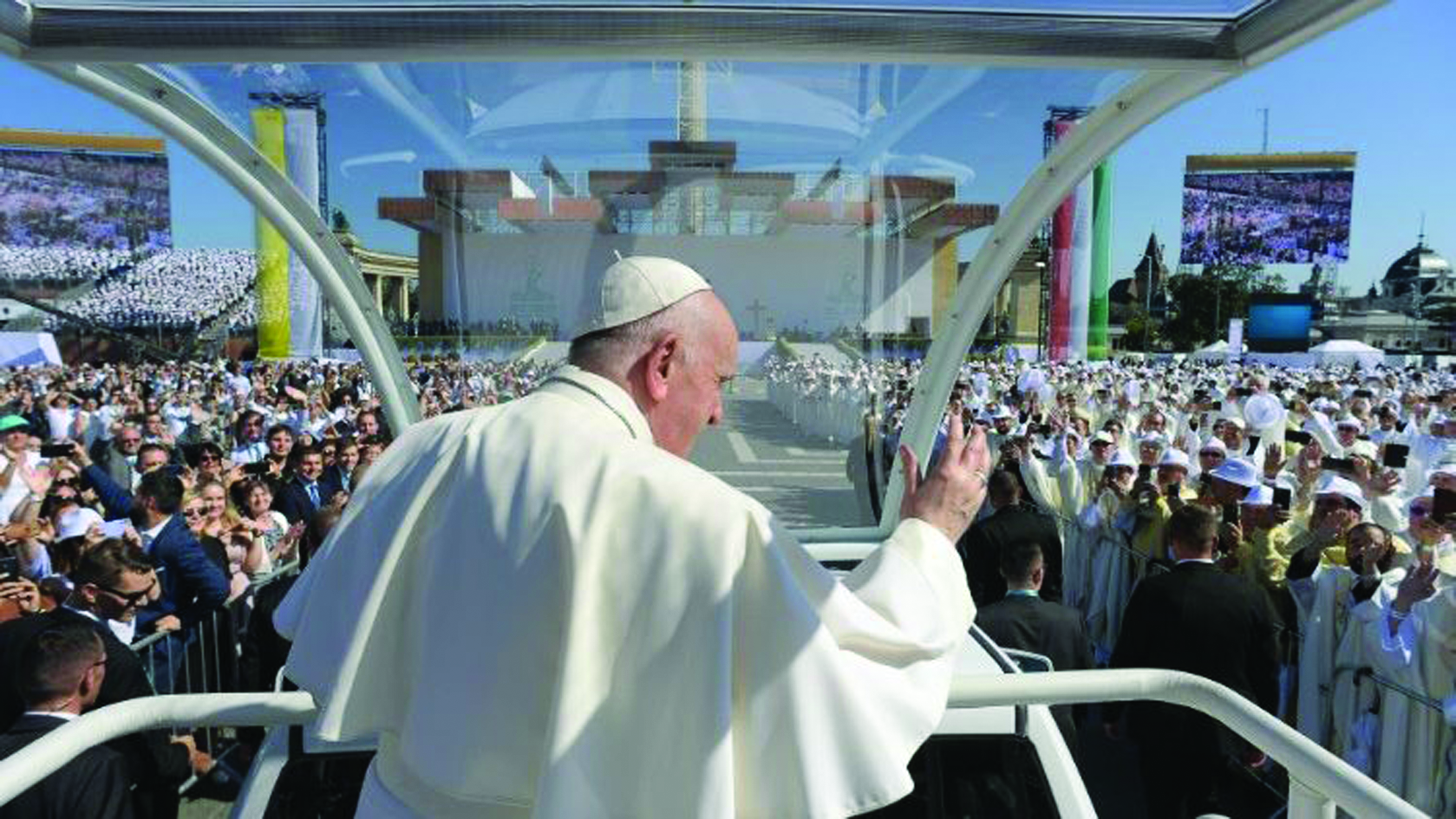
Russian Orthodox Patriarch Kirill of Moscow greets Cardinal Kazimierz Nycz of Warsaw, Poland, and other Catholic clergy at St. Mary Magdalene Orthodox Cathedral in Warsaw on August 16, 2012. The head of the Russian Orthodox Church made a historic visit to Poland with a message of reconciliation.
In the Russian Orthodox Patriarch’s first-ever interview with the secular press, he expresses admiration for the Bishop of Rome. Orthodoxy has been divided from Rome since 1054.
The Patriarch of Moscow and All Russia, Kirill, has released his first interview with a secular magazine, choosing the official Russian news agency Tass. Published on March 10 and dedicated to the period of Lent, the lengthy interview touches on various topical issues: the Mohammed cartoon, the war in Ukraine, relations between the Church and society, and also relations with the Catholic Church. The interview failed to provoke specific comments or clamor in the media, but is part of the broader effort to reaffirm the Russian Church’s presence in the secular life of the nation. In late January, for the first time, Kirill gave a speech before the Duma, the lower house of the Russian parliament.
In the interview, the primate focuses on the value of repentance, explaining that a person who loses the ability to repent is “like a pianist who loses his musical ear.”
“In principle, you can try to execute the piece following the notes, but your execution will be terrible,” he said. “In Christianity it is the sacrament of reconciliation that helps a person to develop a sense of repentance, that is, to control their spiritual state.”
The Patriarch believes that the future of civilization depends on its religious life: the danger of transforming freedom into something that is arbitrary appears when “there are no criteria of truth.”
“Not every human truth is God’s truth and cannot be absolute,” he said, warning that “denying the absolute righteousness of God, we destroy the world.”
The Crisis in Ukraine
The Patriarch admitted that currently the issue that most concerns him is the war in Ukraine: “This does not let me sleep — both literally and figuratively.” He said he is convinced that sooner or later the country will return to peace, but it is important to overcome mutual hostility: “We are calling on the conflicting sides in Ukraine to show prudence. The seeds of antagonism will grow with poisoned fruit in the future.”
Kirill returned to the theme of the divisions in the Orthodox Church in Ukraine, saying that the political and military situation is being exploited by the schismatic community and “a violent seizure” of the parishes of the Russian Orthodox Church is taking place in the country.
“This is a huge mistake on the part of those who declared war on the Church in Ukraine,” he added, saying that the canonical Church in the former Soviet republic will not disappear and rejecting any notion of a schism from Moscow. The Church, he assured, is doing everything possible so that the conflict does not create new victims. “We do not exaggerate our capabilities, but we don’t belittle them either.”
The Charlie Hebdo Case in France
Turning to the relationship between faith and society, Kirill described both terrorism and blasphemy as unacceptable. “We unambiguously condemn terrorism and killings of people for their convictions. We are grieving for those who suffered at the terrorists’ hands. But along with it we find both pseudo-religious and secular radicalism unacceptable.”
Referring to the controversy surrounding the publication of cartoons about Islam, the Orthodox primate explained that the Church of Moscow believes “outrages on religion and defilements of religious feelings are inconceivable in the same way as insults in connection with someone’s ethnic identity are.” According to him, today’s Europe is “choking” in trying to combine multiculturalism and liberal values and Russia deserves praise because it had “sufficient common sense in legislation to prevent actions like publication of religious cartoons in the media, regardless of what particular religion is concerned in each case.”
The Catholic Church and the Pope
The Tass journalist notes to the Patriarch that the Catholic Church is considered less conservative than the Orthodox. Kirill replies: “It is nice to hear the accusations against the Church for maintaining fidelity to its fundamental principles.” The Eastern Orthodox and the Catholic faithful of Rome “belong to different nations with different ancient traditions,” he continued. “Each of us needs to focus on our own affairs and should not interfere in those of the other.”
Questioned on the modest lifestyle chosen by Pope Francis, unlike the luxury of which the upper echelons of the Patriarchate of Moscow are often accused, Kirill replied: “I do not think I should comment on the style of conduct of the Primate of the Roman Catholic Church. And I am confident he would not make comments as regards me either. I have sincere respect for Pope Francis and for the fact he keeps up close bonds to the monastic tradition that molded him.”






Facebook Comments